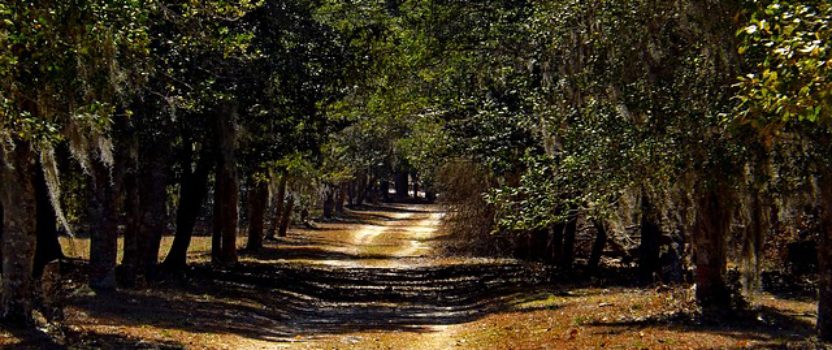Post 2|2016
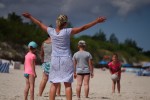 As a child, I remember summer was about holidays from school, wearing less clothes, no shoes, playing with neighborhood friends, feeling warm rather than cold, ice blocks in cordial drinks and generally knowing that it was an easy time of the year; a good time; a fun time. I’m a heaps older now, but I find there is little about those childhood summers that I can re-capture. Certainly we are on holidays, which is great, and we are wearing fewer clothes and no shoes, but we feel hot rather than warm, and it doesn’t feel like an easy time of year or a good time or a fun time. It is something else, something that leaves me feeling tense, and that tension is not age related.
As a child, I remember summer was about holidays from school, wearing less clothes, no shoes, playing with neighborhood friends, feeling warm rather than cold, ice blocks in cordial drinks and generally knowing that it was an easy time of the year; a good time; a fun time. I’m a heaps older now, but I find there is little about those childhood summers that I can re-capture. Certainly we are on holidays, which is great, and we are wearing fewer clothes and no shoes, but we feel hot rather than warm, and it doesn’t feel like an easy time of year or a good time or a fun time. It is something else, something that leaves me feeling tense, and that tension is not age related.
Just under two months ago, in early December last year, we had our first day of serious fire risk associated with ridiculously high temperatures and big winds. We hunkered down here, closed all the windows, pulled down the outside awnings, drew the internal blinds and curtains, and relocated the dogs to under the house, with a bone each to keep them occupied. We managed to keep the house reasonably cool until late afternoon when we had to turn on the ceiling fans. We got through the day, but our productivity was low. I made some effort to update our evacuation box and we vaguely discussed our ‘fire plan’; was it worth reviewing it, given we were now two able-bodied people rather than three, one of whom had been seriously disabled? We thought we could consider staying and defending our property should a fire come through, because it would be a grass fire not a bush fire. A matter for further thought.
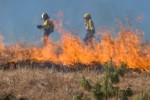 Two weeks after that first day of dangerous summer heat, with a series of hot days in between, a terrible, fast-moving grass fire less than 45 kilometres away, destroyed homes, sheds, pasture, bush and stock. The fire was as far south of our regional center, as we are north. Why for a moment did I think that there was something less destructive about a grass fire compared with a bush fire? We reverted to our old plan; we will leave if there is a risk of fire. We will not defend our house or property. Since those December fires a few weeks ago, there have been many days of high heat and strong winds. Such days are now more normal than are the pleasant, relaxed summer days of my childhood.
Two weeks after that first day of dangerous summer heat, with a series of hot days in between, a terrible, fast-moving grass fire less than 45 kilometres away, destroyed homes, sheds, pasture, bush and stock. The fire was as far south of our regional center, as we are north. Why for a moment did I think that there was something less destructive about a grass fire compared with a bush fire? We reverted to our old plan; we will leave if there is a risk of fire. We will not defend our house or property. Since those December fires a few weeks ago, there have been many days of high heat and strong winds. Such days are now more normal than are the pleasant, relaxed summer days of my childhood.
The result of this new version of summer is a low-level, endless sort of tension. At any time, we need to be ready to pack up the pets, load our evacuation box into the vehicle (which we always keep filled with plenty of fuel) and drive down the road, away from our home, to stay with friends in town. Over summer we are never far away from our phones because they have an app on them, that tells us if there is a nearby fire and what we should do. In the worst possible case, if there is a fire and we evacuate, then we have to be prepared to lose everything. To live with the threat of losing everything is a form of insecurity which, in turn, creates summer after summer of tension. All this and we are not in one of the really high risk local areas. Summer is not what it used to be.
Interesting Reading (helping me to understand what a Low Carbon Life might be) ….
 Completely unrelated to the difficulties of summer, is a surprisingly lovely book that I am in the process of reading. I think it could probably be classified as a text-book because it is comprehensive, well researched and appropriately footnoted but, unlike many text books, it is beautifully written and very readable. The book is called The Art of Fermentation. A neighbour lent it to me because I was bemoaning my lack of success making sour dough bread and said I thought it would help if I hand some understanding of the process of fermentation. Unexpectedly she said she had a book, that she thought I might like to read and within a couple of days she had dropped it in.
Completely unrelated to the difficulties of summer, is a surprisingly lovely book that I am in the process of reading. I think it could probably be classified as a text-book because it is comprehensive, well researched and appropriately footnoted but, unlike many text books, it is beautifully written and very readable. The book is called The Art of Fermentation. A neighbour lent it to me because I was bemoaning my lack of success making sour dough bread and said I thought it would help if I hand some understanding of the process of fermentation. Unexpectedly she said she had a book, that she thought I might like to read and within a couple of days she had dropped it in.
It turns out that I know nothing about fermentation, but the first thing I have learnt is that fermentation is a way of preserving food, so it has a close relationship with a low carbon life. The relationship is partly described in the following paragraph:
‘With fossil fuel supplies dwindling and requiring increasingly destructive extraction, rising global demand, and much uncertainty regarding availability, affordability and safety of energy resources, we must consider the energy required by different foods. This means taking account of the energy embedded in the food’s growth and transport, as well as the energy we use in our homes for both refrigeration and cooking. Fermented foods can reduce the need for both refrigeration and cooking.’ (p.32)
So far I haven’t learnt enough to make any positive difference to my sour dough bread making (which I have been experimenting with for over two years) but I will succeed! I’ll also share the back story to my experiments in The Sour Dough Bread Project so if you are interested, stay tuned.
Projects (new initiatives leading towards a Low Carbon Life) ….
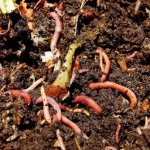 This fortnight I completed:
This fortnight I completed:
- The Worm Farm Project. The purpose of this project is to reduce the amount of material we send to landfill because material in landfill emits the green house gas, methane, which remains in the atmosphere a lot longer than carbon dioxide. Read more …
Incidents (domestic maintenance leading towards a Low Carbon Life) ….
This fortnight I did more work on: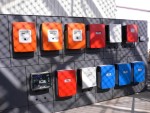
- The Faulty Inverter Incident.
Resolution of this incident will be the resumption of solar electricity being available to us in the prime generating time of summer. So far I have learnt to be really patient and control my frustration! Read more …
Really ….
Post Paris December 2015, it looks like ‘Climate Change’ has become a phrase that you should use if you want to capture readers’ attention. How about climate change being responsible for the absence of aliens? I did read the article, and it has been written by researchers from serious and reputable institutions, but really?
Until next time, Jane

